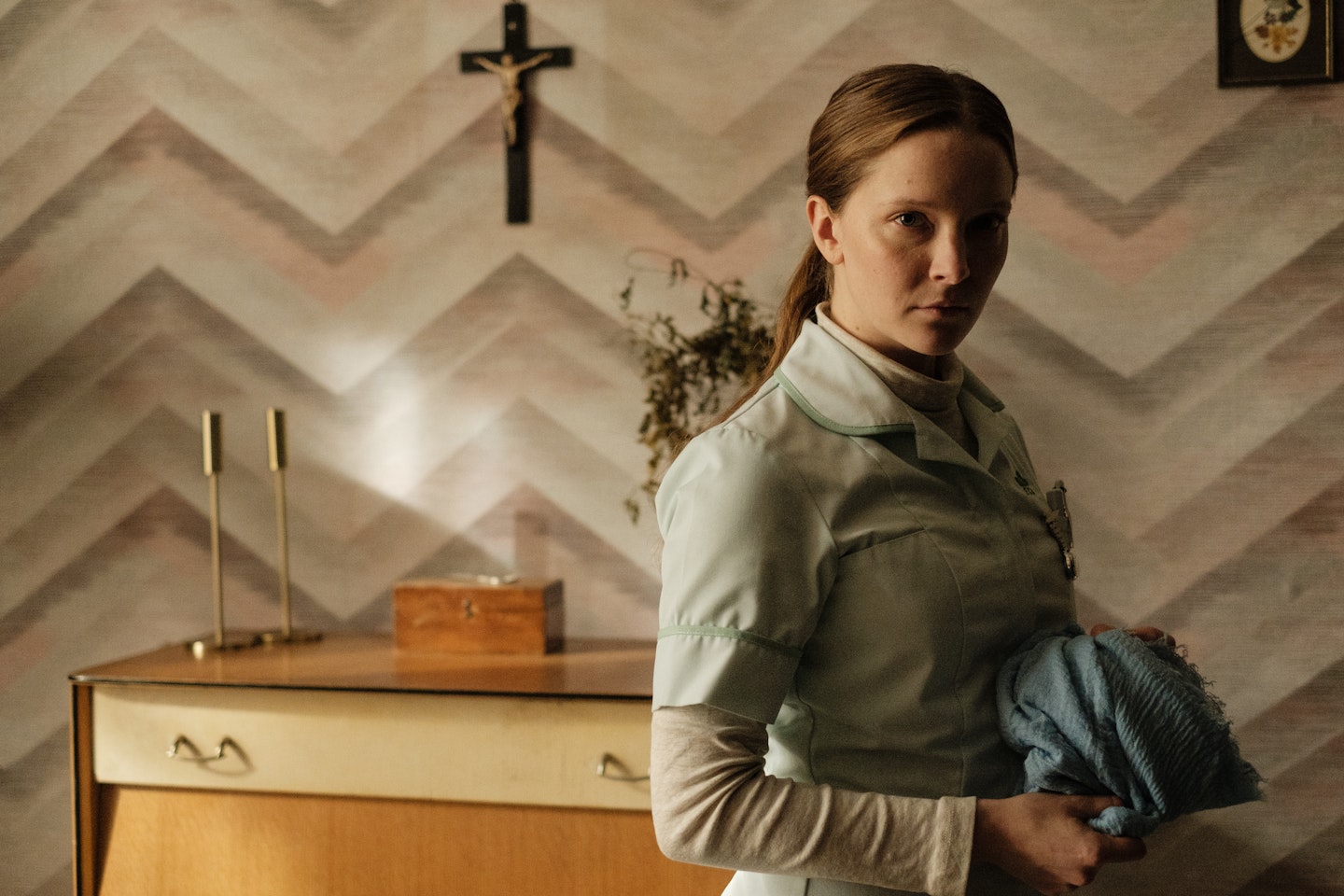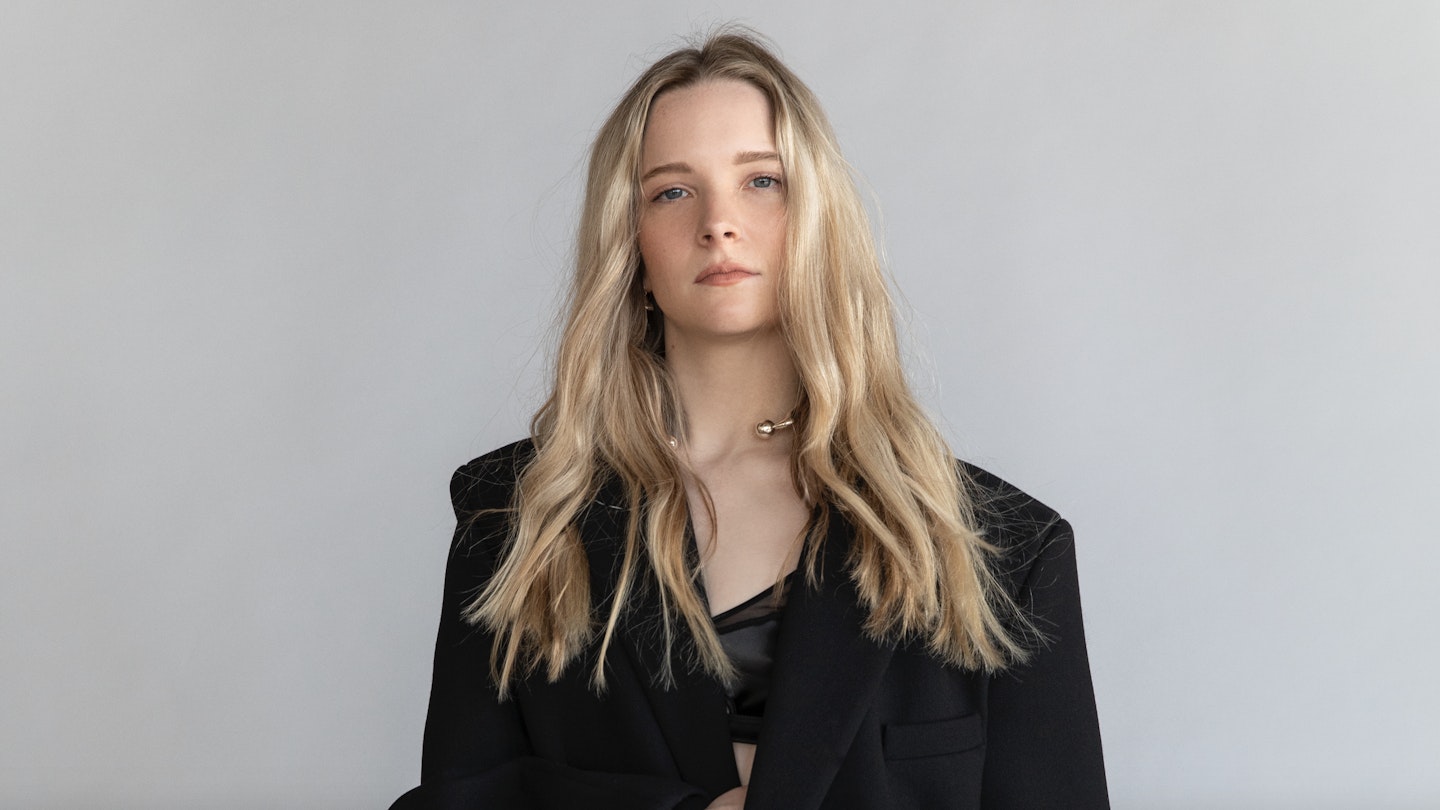Every year, award season comes and go in a carnival of colour and a cacophony of applause. We have the Oscars, the BAFTAs, the Golden Globes and SAGs, major headline events with sprinklings of smaller, and yet nevertheless significant, ceremonies, all designed to celebrate achievements in film. And yet, despite the fact that these awarding bodies are copious, with different individuals on the respective juries, we have come to see very little variety in the nominees receiving the nods. But this year, BAFTA in particular has shown itself has having more of an imagination than its international counterparts. The nominations this yeargive kudos to esteemed actors snubbed by the Academy, showing a wide range of diversity when it comes to age, race and gender. And they also, finally, seem to have kept in mind that films small in budget can still pack an enormous emotional punch. A case in point? Saint Maud. A tense drama with a tone of horror beneath the surface, the film is a worthy nominee in the Best Film category while its star, Morfydd Clark, is competing in the Rising Star category for a riveting performance that holds you in its grip.
‘It's really amazing,’ Morfydd beams over her Zoom call with Grazia, recalling the moment the news of the Rising Star nomination came through. With Morfydd in New Zealand filming a significant-yet-unconfirmed role in Amazon’s forthcoming Lord of the Rings adaptation, it was a case of mixed time zones. ‘I was in bed in the morning, hearing from my team very late at night, and I got up like nothing had changed. But when I saw the list of the other people, and realised that these people are great, that's kind of when it started to sink in. I immediately felt a lot of affection for all of those people.’ The Best Film nod came later, but seems to have been even more welcome.
‘I feel that my expectations were kind of blown out of the water a year and a half ago when it was at film festivals, so everything else was just a “oh! Wow!”’ she says. ‘But to have it be nominated for Best British film too really feels like a kind of pat on the back for everyone who was involved in it: it was sort of a passion project for everyone, and it was so collaborative. It’s just lush.’
Many viewers’ immediate response to the film was a focus on the more supernatural elements. The depiction of visions, for example, of voices, of the final disturbing scene. But, on the page, Morfydd was far more interested in Maud as a human being: a young woman, battling with her sense of faith, and struggling to reconcile that with the world she lives in.
‘I really didn't find it scary at all,’ she explains of when she first read the script. ‘I'm not a filmmaker. But when I watched it, I was like, “this is scary!” I'm quite glad that I didn't feel that before, because I never felt that I needed to incite fear: I felt a lot of empathy for this woman. She’s got a mission, and she’s going for it.’
Morfydd’s Rising Star nomination is well-deserved: Saint Maud has undoubtedly put her on a global radar that she had yet to show up on. But she is no newcomer. Her turn opposite Kate Beckinsale in Love & Friendship was a must-watch. She had TV turns in Patrick Melrose and His Dark Materials. As Cordelia in Deborah Warner’s stage adaption of King Lear, she more than held her own beside acting legend Glenda Jackson. Saint Maud, though, gave her the chance to truly take the lead. That didn’t make her nervous.

‘The character made so much sense to me, and it was so complete, that I was never searching in the darkness for anything,’ Morfydd says. ‘I felt I knew where it was going, and where I needed to go. I'm quite fascinated by the health service, in terms of the privatisation of that and what that means in terms of mental health support, and the fascinating aspect of religion, so I was just obsessed with it.’
Maud is, for the uninitiated, a private palliative care nurse working for a terminally ill woman. She is dedicated to her work, but her extremely devout faith – developed relatively recently, following the death of a previous patient - makes her a figure of fun to many of the people in her life. For Morfydd, it was a fascinating concept and a journey into the unknown.
‘I know people who've both lost their faith, and people who found faith,’ she says, ‘and I'm neither of them. I've always found that concept quite mind boggling. The idea that your whole view on existence in the world could change so drastically and also with losing faith, how frightening it must be to lose what made sense of your world.’
Despite the end product – an accomplished film yes, but something of a stomach punch – Morfydd says the production was a ‘gorgeous’ time spent with hard workers both in front of and behind the camera. That includes Jennifer Ehle, who plays Maud’s patient Amanda and is best known internationally as Lizzie in the seminal BBC production of Pride and Prejudice. Despite the on-screen tension, Morfydd found the camaraderie nourishing. ‘I really feel that post MeToo there was a real push, that we're going to be kind to each other,’ she explains. ‘And really look after each other. To have come into this industry with that is pretty amazing.’
Saint Maud also gives a little glimpse into Welsh, with Maud hearing voices in the language. Morfydd, who moved to south Wales as a young child and is a fluent speaker, loved slipping her mother tongue into the action. ‘I kind of didn't really appreciate how wonderful that was, until I was watching it with Canadians,’ she laughs. ‘They were like, “is that Latin?” It was really special for me to really make it my own. And I'm really glad that Rose [Glass, the writer and director] capitalised on everything that I could bring to it.’
Whether or not Morfydd and the film are successful at the BAFTAs, her performance in the film and a role in a major fantasy series makes an increased profile inevitable. Will we be hearing a touch of Welsh in Middle Earth some point soon? Watch this space…
voting for the EE Rising Star Award is now open at ee.co.uk/BAFTA and the winner will be announced at the EE British Academy Film Awards on Sunday 11th April 2021.
Main image: Photographer: Guy Coombes. Stylist: Paris Mitchell Temple. Hair and Make-Up: Kath Gould.
READ MORE: All The Best Looks From The BAFTAs 2020
READ MORE::a[The Best BAFTA Dresses Of All Time]{href='https://graziadaily.co.uk/fashion/shopping/best-ever-bafta-dresses/' target='_blank' rel='noopener noreferrer'}
